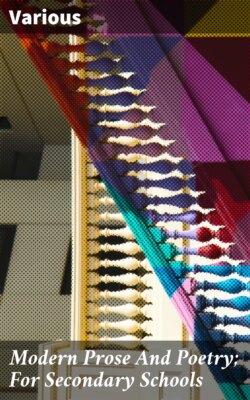Читать книгу Modern Prose And Poetry; For Secondary Schools - Various - Страница 27
На сайте Литреса книга снята с продажи.
SUGGESTIONS FOR STUDY
ОглавлениеTable of Contents
The author sees an organ-grinder playing his gay tunes in Wall Street, New York, among the buildings where enormous financial transactions are carried on. He (the author) imagines this wandering minstrel to be Pan himself, assuming a modern form. Read the notes carefully for what is said about Pan. Notice, in the poem, how skillfully the author brings out the contrast between the easy-going days of ancient Greece and the busy, rushing times of modern America. Of what value is the word serenely in the first stanza? What is the "curbstone war"? Do you think the old-fashioned Pan's pipe is common now? Could a man play an organ and a pipe at the same time? Why is the city spoken of as "sordid"? What is the "civic ear"? In the description of the player, how is the idea of his being Pan emphasized? How was it that the bulls and bears drew together? In plain words who were the people whom the author describes under Greek names? Show how aptly the mythological characters are fitted to modern persons. Read carefully what is said about the power of music, in the stanza beginning "O heart of Nature." Who was the man in blue? Why did he interfere? Why is the organ-grinder called a "vagrant demigod"? What was it that the author doubted? What is meant here by "Great Pan is dead"? Does the author mean more than the mere words seem to express? Do you think that people are any happier in these commercial times than they were in ancient Greece? After you have studied the poem and mastered all the references, read the poem through, thinking of its meaning and its lively measure.
Read Mrs. Browning's poem, A Musical Instrument, which is about Pan and his pipe of reeds.
